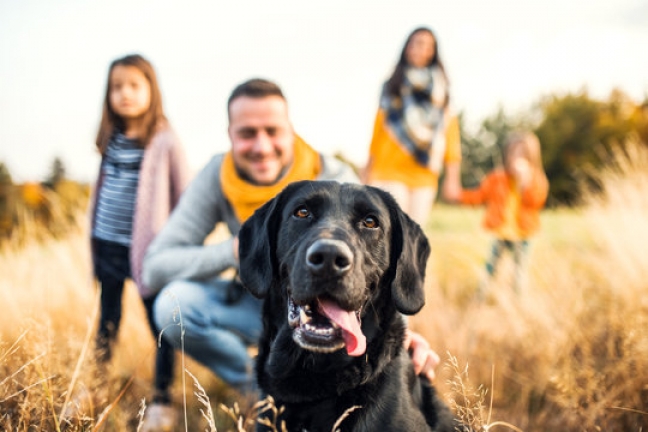Situations vary, and sometimes certain things in life just occur. You may find yourself needing to relocate to a new place that is not pet-friendly, or you may need to travel for business for a longer period or go on a trip that would require you to live in a hotel for numerous months.
These instances would generally necessitate the rehoming of your canines since it’s impossible or too difficult for them to accompany you.
It may be unpleasant for you, but have you ever considered what it must be like for your dog to move from one home to another? Should you even visit your dog after rehoming? Keep reading this blog post to get an accurate answer to this question.
Should I Visit My Dog After Rehoming?
Deciding whether or not to visit your dog after rehoming is a complex and this decision should be made with careful consideration of the individual circumstances involved.
While the desire to reconnect with your beloved companion may be strong, it’s crucial to weigh potential benefits against the potential drawbacks.
Several factors should be considered when making this decision, including the reason for rehoming, your dog’s personality, and the wishes of the new family.
If behavioral issues were the driving force behind rehoming, visiting your dog could potentially disrupt their progress and hinder their adaptation to their new environment.
Conversely, if rehoming stemmed from life changes beyond your control, a carefully planned visit could foster a sense of comfort and familiarity.
Your dog’s personality also plays a significant role in determining whether or not a visit is advisable.
Socially inclined dogs may welcome interactions with their former owners, while more introverted or anxious dogs could find visits overwhelming and stressful, it’s essential to gauge your dog’s temperament and make a decision that aligns with their comfort level.
Respecting the new family’s wishes is also paramount when contemplating a visit. Their input and concerns should be considered, as they have become your dog’s primary caregivers.
Open communication with the new family can help establish boundaries and ensure a positive experience for all parties involved.
If you decide to proceed with a visit, it’s important to approach with sensitivity and caution. Start with brief encounters, gradually extending the duration as your dog adapts to your presence.
Refrain from interfering with the new family’s interactions with your dog and be prepared for a range of emotional responses from your dog, ranging from excitement to indifference.
If in-person visits prove challenging, consider alternative methods to maintain a connection with your dog, such as requesting regular photo and video updates from the new family or exchanging letters or emails.
Your love for your dog remains unwavering and your continued care for their well-being can be expressed through these alternative means.
Do Dogs Remember Their Owners After Rehoming?

Dogs are known for their loyalty and affection, and many people wonder if their furry friends will remember them if they are rehomed.
The answer to the question above is not always clear, as there is a lot of differences between individual dogs. However, there is some evidence that shows that dogs can indeed remember their owners after being rehomed.
Below is what the research says:
A study published in the journal Animal Cognition found that dogs were able to recognize their former owners after six months or more.
The dogs in the study were shown pictures of their former owners and strangers, and they approach the picture of their former owner while neglecting the picture of the stranger.
Another study published in the journal Applied Animal Behavior Science found that dogs were able to remember their former owners’ voices after two years.
The dogs in the study were played recordings of their former owners’ voices and strangers’ voices, and they responded to the voice by jumping, shaking their tail and vocalizing.
Factors That Affect Whether a Dog Will Remember Its Owner

Several factors can affect whether a dog will remember its owner after being rehomed, some of them are the age of the dog, the length of time the dog spent with its former owner, and the dog’s personality.
Younger dogs are more likely to remember their former owners than older dogs. This is because younger dogs are still in the process of developing their memories.
Dogs that spend a long time with their former owner are also more likely to remember them. This is because the dog has had more time to form a strong bond with its owner.
Dogs’ personalities can also play a role in whether they remember their former owners. Some dogs are simply more social and outgoing than others, and these dogs may be more likely to remember their former owners.
The Pros of Visiting Your Dog After Rehoming
If you’re thinking about visiting your dog after rehoming them, there are a few advantages to consider.
It’s difficult to say goodbye to your dog, and it’s normal to want to hear that they’re doing well in their new home. Seeing them happy and healthy might aid in your choice to rehome them.
When you visit your dog after they’ve been rehomed, you may reassure them that they’re still loved and cared for, even if they’re in a different area.
Second, it can assist your dog in adjusting to their new home. Dogs are sociable animals who create close ties with their owners.
Seeing your dog after it has been rehomed might help the new owners bond with their new companion.
When the new owners realize that you’re still concerned about your dog’s well-being, it might make them feel more at ease and secure in their decision to adopt.
Cons of Visiting Your Dog After Rehoming
Of course, there are certain disadvantages of seeing your dog after rehoming them. Firstly, it can be emotionally draining for both you and your dog.
Seeing your dog after you’ve agreed to split ways can be bittersweet, and walking away a second time may be more difficult than you expect.
Second, if you visit after rehoming your dog, it may be confusing for them. Dogs are creatures of habit, and if you just come once in a while, they may not comprehend why you’re coming and departing.
If you intend to visit your dog after rehoming them, make sure you do it frequently, so they don’t get overly attached or confused.
Conclusion
Should I Visit My Dog After Rehoming? This question doesn’t have a straightforward answer. Visiting your dog after rehoming has its advantages and disadvantages.
In this blog post, we have listed out the advantages and disadvantages of visiting your dog after rehoming and all you have to do is to weigh the two options and go for the one which outweighs the other.
Before you go, you can also read: Can Huskies be Service Dogs?







Leave a comment